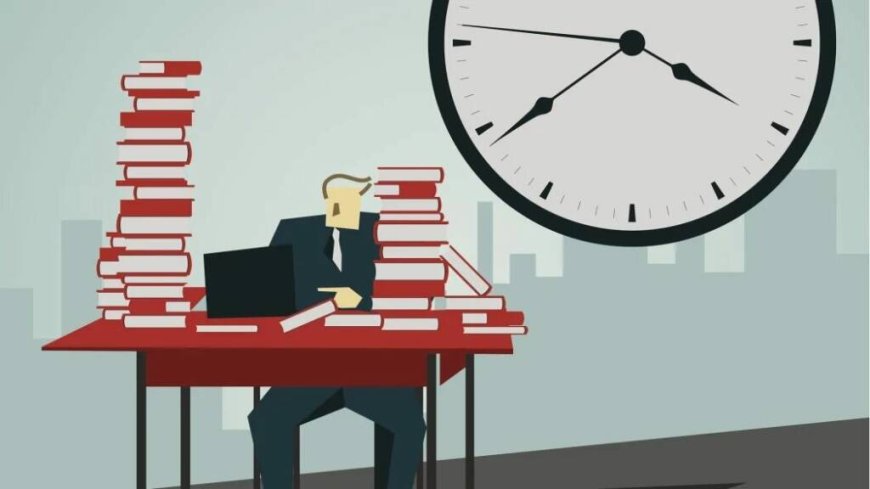Work time. Time relax
Working time is the time during which the employee must perform his labor duties in accordance with the internal labor regulations (hereinafter - PWTR) and the terms of the employment contract. Also, working hours may include other periods of time that are directly related to working hours by the norms of the Labor Code itself, other federal laws and other regulatory legal acts (Article 91 of the Labor Code of the Russian Federation). Rest time - the time during which the employee is free from the performance of labor duties and which he can use at his own discretion (Article 106 of the Labor Code of the Russian Federation). The types of rest time are: breaks during the working day (shift); daily (between shifts) rest; days off (weekly uninterrupted rest); non-working holidays; holidays.

The duration and types of the working day are established by the Labor Code of the Russian Federation.
1. Normal working hours - no more than 40 hours per week (Article 42).
2. Reduced hours of work are established (Article 43):
a) for workers and employees aged 16 to 18 years - 36 hours a week, and for persons aged 15 to 16 years - 24 hours a week;
b) for workers and employees employed in work with harmful working conditions - no more than 36 hours per week.
3. Five-day and six-day work week. With a six-day (Article 46):
a) with a weekly rate of 40 hours - no more than 7 hours a day; b) at a weekly rate of 36 hours - 6 hours a day; c) at a weekly rate of 24 hours - 4 hours a day.
4. The duration of work on the eve of holidays and days off is reduced by 1 hour (Article 47), except for employees for whom a reduced working time is established.
5. The duration of work at night is reduced by 1 hour. According to the conditions of production, daily duration is allowed with a six-day working week (Article 48).
6. Part-time work may be established by agreement between workers, employees and administration. Payment is made in proportion to the hours worked or depending on the output (Article 49).
7. Overtime work may be carried out by the administration in exceptional cases in agreement with the trade union committee. Their duration should not exceed four hours for two consecutive days and no more than 120 hours per year (Article 56).
8. The summarized recording of working time may be introduced for a certain period, but in such a way that the total length of working time does not exceed the period established for this period (Article 52).
9. A break for rest and meals is provided to workers and employees, as a rule, 4 hours after the start of work, lasting no more than 2 hours. A break is not included in working hours (art. 57).
10. Days off: - 2 days with a five-day working week; - 1 day for a six-day work week.
11. Annual paid leave is granted to employees with a duration of at least 24 working days per six-day working week. The procedure for calculating the duration of annual paid leave is determined by law.
Additional annual leave is granted:
1) employees employed in work with harmful working conditions;
2) employees employed in certain sectors of the national economy and having a long work experience at one enterprise, organization;
3) employees with irregular working hours;
4) employees working in the regions of the Far North and equivalent areas;
5) in other cases provided for by law and collective agreements or other local regulations.
12. Leave for the first year of work is granted to employees after eleven months of continuous work at a given enterprise, institution, organization. Before the expiration of eleven months of continuous work, leave at the request of the employee is granted: to women - before the leave for pregnancy and childbirth or immediately after it; employees under the age of eighteen; military personnel transferred to the reserve and sent to work in the order of organized recruitment - after three months of work; in other cases provided for by law.
Employees transferred from one enterprise, institution, organization to another enterprise, institution, organization may be granted leave before the expiration of eleven months of work after the transfer. If before the transfer the employee has not worked for eleven months at one enterprise, institution, organization, then leave can be granted to him after eleven months of work before and after the transfer in total.
Vacation for the second and subsequent years of work may be granted at any time of the working year in accordance with the order in which vacations are granted.
13. The sequence of granting holidays is established by the administration in agreement with the relevant elected trade union body of the enterprise, institution, organization. Vacations can be granted at any time throughout the year, but without disrupting the normal course of work of the enterprise, institution, organization.
14. Leave must be granted annually at the prescribed time.
Annual leave must be postponed or extended: in case of temporary disability of the employee; when an employee performs state or public duties; in other cases provided for by law.
In exceptional cases, when the provision of leave to an employee in the current working year may adversely affect the normal course of work of an enterprise, institution, organization, it is allowed, with the consent of the employee and in agreement with the relevant elected trade union body of the enterprise, institution, organization, to transfer the leave to the next working year. At the same time, leave for each working year of at least 6 working days must be used no later than within one year after the entitlement to leave. The rest of the unused vacation can be added to the vacation for the next working year.
It is prohibited not to grant annual leave for two consecutive years, as well as not to grant leave to employees under the age of eighteen and employees entitled to additional leave due to harmful working conditions.
What's Your Reaction?



























































